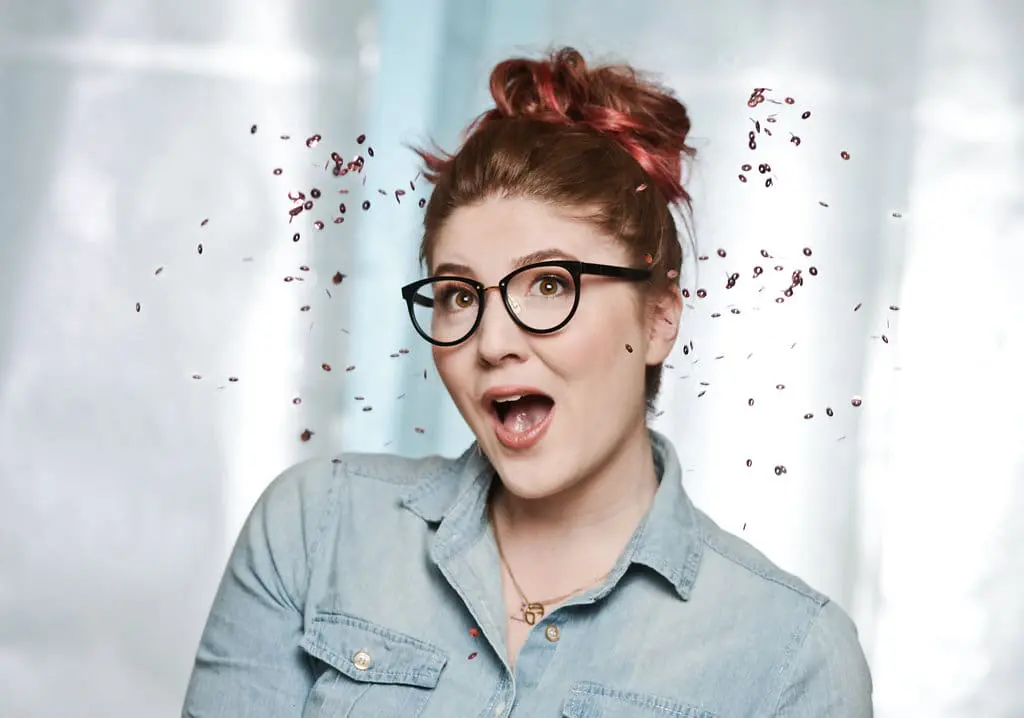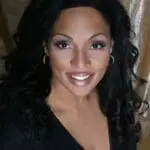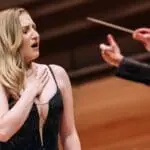This is the continuation of a new series of Q&As with the artists of Canada’s opera scene. After our “Quarantine Questions” from the spring/summer of 2020, we’re checking in once again with these artists as they share new perspectives on mid-pandemic opera. Next up: director, writer, producer, and co-founder of Amplified Opera, Aria Umezawa:
After nearly a year away from a “normal” performance calendar, what perspective have you gained about the worlds of opera and classical music? What is its importance to you, and how does this compare to this time last year?
“The major insight I’ve gained over the past year is that the opera world is ready for change now. We are hungry for it. There may be different opinions on how we move forward, but artists, administrators, and audience members alike are ready for opera to evolve. I’m excited to see what form that change takes in the near future.”
” I’ve never felt the pressure of hustle culture more deeply than I have this past year.”
What do you miss the most about giving and hearing live performances?
“I miss the feeling of the spontaneity of live performance. I miss the way things feel organic and alive. I also miss the feeling of being an audience member and not having my focus totally guided by a camera, or my listening totally guided by a mixing board. Sure, we have lights and sets, and ways to frame and pull focus in live performance, but there is so much more space and distance in between the viewer and what they’re looking at. I miss having the ability to take it all in at once and make sense of what I’m witnessing for myself.”
What activities or pursuits have you taken up since last March? Do you have any new interests or passions you can tell us about?
“I’ve always been prone to flights of fancy, so it doesn’t take a whole ton to capture my focus for short bursts. I had my sourdough phase, my colouring book phase, my journaling phase, my crocheting phase. I think I checked most of the pandemic activity boxes. So nothing new to report on that front.”
“We don’t need to control the narrative, we can share the platform.”
What advice do you have for your fellow artists, for staying motivated and engaged during such a difficult time?
“Look. I get it. This really sucks, and it sucks that there is pressure to keep producing work because so much of it feels like it’s coming from a scarcity mindset instead of from inspiration. I’ve never felt the pressure of hustle culture more deeply than I have this past year, and I’m not convinced that putting pressure on each other to keep producing public-facing work is the healthiest mindset.
“Honestly, I would encourage people to take care of themselves first. Protect the passion. Remember that you are important. You are enough. The way that you express yourself is beautiful. And these things will be true whenever you feel like sharing your art with the rest of us. Do what feels enriching and generative. Do what you need to do in order to survive this marathon with your creativity intact. Find the people that will help you through (I don’t know where I would be without the Amplified Opera co-founders). There’s no use in burning yourself out now. The most important thing we will need coming out of this pandemic is the passion you have for this art form. It’s that passion that will help us all rebuild.”
When performances can resume, what do you think opera can or should say with its output? What sort of platform will it have, post-COVID?
“I think opera can and should start listening. We don’t need to control the narrative, we can share the platform. The idea of letting go is likely going to be more uncomfortable for us than forcing artists to take specific positions or give voice to certain stories in order to be heard.”
Aria Umezawa














